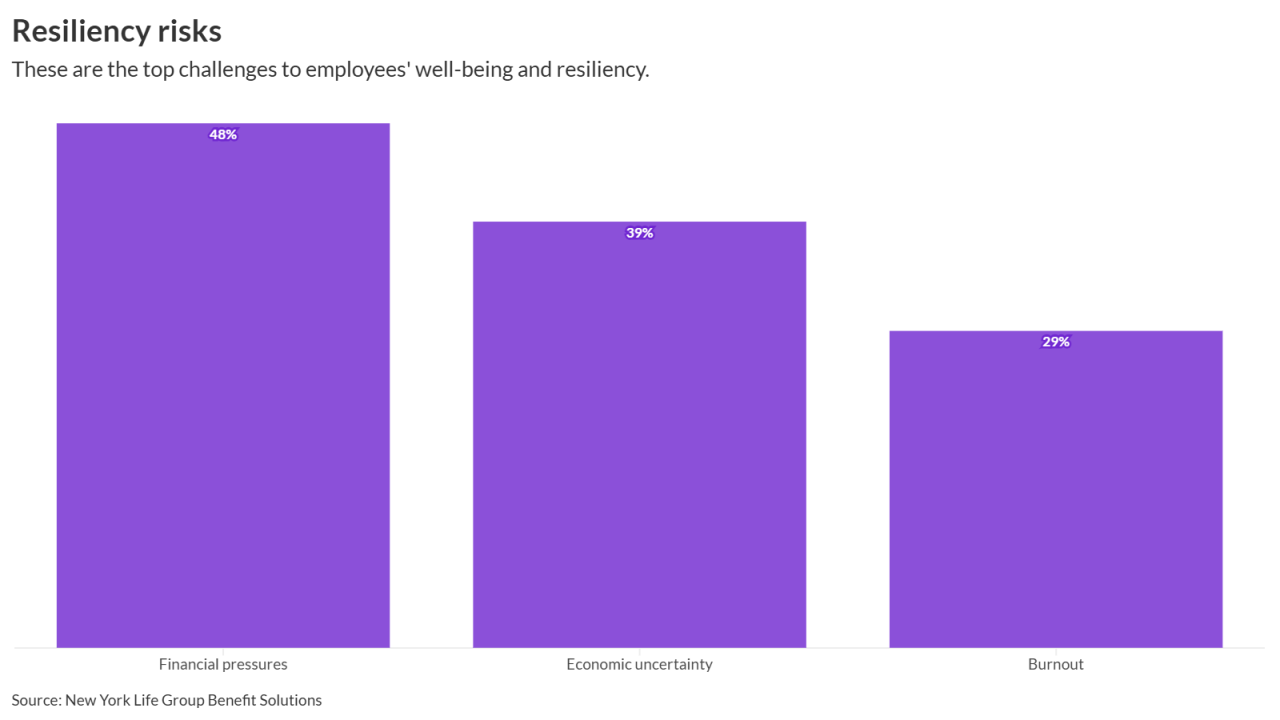Do the financial wellness programs that companies often implement to help their employees better manage their finances actually work?
Yes, says Prudential Financial, one of the world’s largest financial services firms.
In a recent study of its employees, Prudential found that fewer workers reported financial issues after the company implemented a series of financial wellness initiatives and tools. The survey covered a 10-year period starting in 2008.
Prudential was spurred to action a decade ago when it learned that its employees were experiencing more financial problems than its competitors despite being offered a relatively generous benefits package. Almost one in three employees (31%) in 2008 reported that they experienced financial stress, higher than WebMD’s national benchmark of 28%, according to the report.

By the end of 2016, after gradually rolling out of a variety of financial wellness measures, the company saw the percentage of employees experiencing financial stress drop to 16%, falling below the WebMD national benchmark of 19%.
“With appropriate measures and with appropriate type of capabilities, you can positively impact financial stress within a workforce,” says Vishal Jain, financial wellness officer of Prudential’s workplace solutions group.
Monthly budgeting seminars and budget coaching were among the measures the company adopted. It also began defaulting new 401(k) plan participants into Roth accounts rather than traditional pre-tax accounts, and automatically escalating their contributions at a rate of one percentage point per year, up to a maximum of 15% of salary. It also created a number of targeted messaging campaigns to encourage improved use of the 401(k) plan.
One of the groups the email-based messages targeted were employees who were not deferring at rates that would enable them to maximize the plan’s matching contribution.
“It provided them with a reminder that essentially they’re leaving money on the table,” Jain says.
In 2015, Prudential launched a worksite financial education program called Pathways that it says has helped employees with retirement and other savings needs. The program consists of on-site workshops, seminars and lunch-and-learn sessions led by licensed financial advisers. It also makes arrangements for financial advisers to be available onsite at specific locations on given days of the week during office hours.
In addition, the program offers digital financial education on topics such as deb management, saving and investing and retirement planning strategies.
The Pathways program is deployed at many Prudential locations in the U.S. and is available to outside companies. Close to 400 organizations ranging from small employers to Fortune 500 companies have used the program, according to Jain.
Employers of all sizes increasingly are making workplace financial education available as employees struggle with everything from student debt to planning for retirement. In 2018, nearly half (48%) of companies offered financial counseling services either online, one on one, or in a classroom setting, up from 28% in 2014, according to the Society for Human Resource Management. Of the three formats in which financial education is delivered, online is the most popular as 35% of employers use it. Almost as many (34%) offered one-on-one financial education and 29% offered group or classroom-style learning.
Their motivation for the offerings is not entirely altruistic. Financially stable employees are more productive and miss significantly fewer days of work, according to researchers. In a recent survey of 1,324 employers and employees, for example,
Prudential’s experience bears that out. The company found that the employees who experienced financial problems lost a full week of productivity compared to other employers and were more likely to experience a short-term disability.




